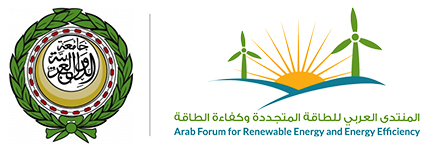Final Deceleration
In recognition of the importance of sustainable energy development in the Arab countries; and taking into account the importance of sound policies for the management of natural resources, including the diversification of energy sources, and expansion to improve energy efficiency, and to increase the contribution of renewable energy in the total energy mix.
Emphasizing the importance of establishing an Arab Electricity Market predicated on competition and efficiency to ensure the high quality cost effective service in the production, transmission and distribution to the customers without compromising of environmental standards.
In alignment with all relevant Arab Summits resolutions, Arab Ministerial Council and its Executive Bureau resolutions in regards to the comprehensive Arab Electricity Interconnection projects with the purpose of establishing a commercial Arab Common Market for Electricity.
In line with the resolutions of the United Nations Summit on Sustainable Development (June 2012, Rio de Janeiro- Brazil), Secretary General of the United Nations initiative for Sustainable Energy for all by 2030 and the international and regional activities that followed in preparation for a new Sustainable Development agenda post 2015 which adopted 17 Sustainable development goals to be achieved by 2030. Most notably was goal number 7 which states the right for all individuals to obtain access to cost effective modern and sustainable energy services.
Based on the “Pan Arab Strategy for the development of Renewable Energy (2010-2030) which was adopted and ratified on the margins of the Arab Economic Summit (Riyadh-2013) which signified the dawn of a new era and calling on all Arab Countries including those dependent on oil to integrate renewable Energy in their total energy mix through the initiation of renewable energy projects.
Stemming from its regional role, the League of Arab States (LAS) is organizing the 3rd Arab Forum for renewable energy and energy efficiency on June1-2-, 2016 in coordination with the Ministry of Electricity and Renewable Energy and the Electricity Regulatory Authority (Egypt) and in collaboration with the United Nations Economic and Social Commission for Western Asia (ESCWA), The Regional Center for Renewable energy and Energy Efficiency (RCREEE) the Energy Efficiency in the Construction Sector in the Mediterranean (MED-ENEC) and the German Agency for International Cooperation (GIZ). The Forum highlighted the hurdles confronting our Arab region and the need to channel our efforts towards the development and capitalizing on the abundance of the renewable energy resources by establishing the necessary legislation and strategies to expedite the integration of these resources.
The Conference on Climate Change(COP 21) held in Paris-December 2015 reflected an international political will of the signatory States to reverse the affect of climate change by integrating and enhancing the role of renewable energy and supporting the application of renewable energy efficiency procedures. The concerted effort by
all stakeholders needs to reflect a cautious approach to curb risks of investments in the renewable sector in the Arab Region.
Calling on all stakeholders, national, regional and global partners, officials representing the Public Sector, representatives of the private Sector, all key partners operating in the renewable energy to take advantage of all discussions and interventions that took place during the two days of the Arab Forum.
Confirming our commitment to establish a competitive sustainable energy market in the Arab Region through the deployment of renewable energy projects and by adopting energy efficiency procedures. Capitalizing on the competitive advantages available for the Arab States such as the abundance of natural resources, financial, industrial and human capabilities in order to create an integrated regional market viable for renewable energy and energy efficiency which will boost the national industries of the Arab States. This will contribute to the diversification of the Arab economies.
To accomplish the objective of establishing a competitive sustainable energy market and taking into account the variation in the action plans for renewable energy and energy efficiency of the Arab States, more coordination needs to be sought to overcome the following obstacles:
- Delay by some Arab States in adopting a National Strategy for Sustainable Development by 2030 which will have repercussions on the development of their national economies and consequently a direct impact on the reforms needed for the energy sectors.
- The dependence of Arab States to date on traditional energy sources.
- The reliance on subsidies to support traditional energy sources which makes the cost of renewable energy not feasible.
- The negative impact of direct government intervention to control the production, transmission and distribution of energy which discourages the involvement of the private sector.
- The exaggerated cost of receiving a bank loan to invest in renewable energy and
energy efficiency. - Lack of interest in investing in the scientific research, information and innovation,
market analysis for the energy sector. - Lack of harmonization between market players which leads to risk of investments
by private sector in the energy field. - Difficulty in obtaining or qualifying for a loan to invest in the energy sector, the need to restructure the sector, the inexperience of technical expertise in the manufacturing of equipment and the lack of public awareness.

